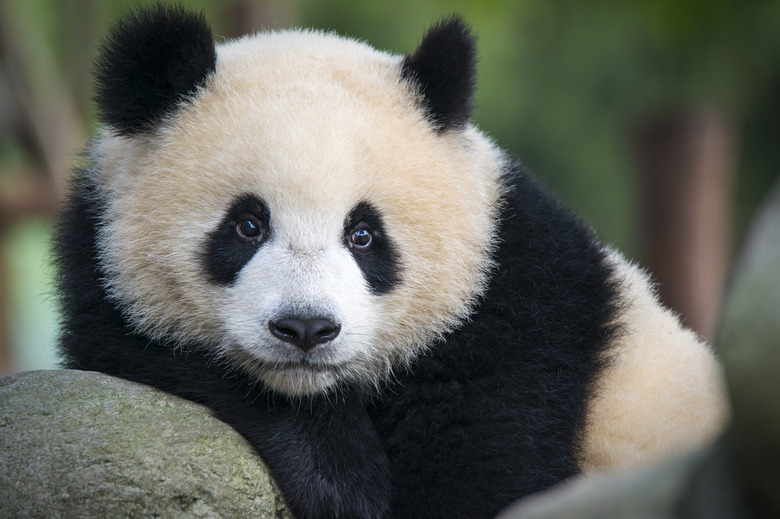Why People Shouldn't Kill Endangered Animals
Animal species are valuable to humans not only for the beauty and interest they provide to human culture, but also because they are of great value to humans from a medicinal, ecological, commercial and recreational standpoint. While there are many organizations whose members are working diligently to protect endangered animals, human activity is still creating species losses between 100 and 1000 times the normally expected extinction rate.
Medicinal Value
Medicinal Value
Animal species are of significant value in medicine. It is estimated that about 40 percent of all medicines derive from animals and plants and since not all substances produced by animals have been evaluated for medicinal use, the loss of one species could result in losses of treatments for human diseases. For example, babies who have respiratory distress syndrome, a potentially fatal disease in infants, have been successfully treated by the use of substances derived from animals.
Ecological Value
Ecological Value
Animal diversity is critical to maintaining a balanced and healthy ecology. Since all species are interrelated directly or indirectly, the loss of one species causes a harmful ripple effect among the others. An example of the interrelatedness of species, both plant an animals, is provided by the U.S. Fish and Wildlife Service that has estimated that the loss of one plant species can result in the loss of as many as 30 other insect, plant and animal species.
Commercial Value
Commercial Value
Wild animal species are an important source of commercial activity in the United States. Fresh water mussels are raised for food and other commercial purposes. Unfortunately, 43 percent of freshwater mussels are extinct as a result of loss of fish that host them, climate change, loss of habitat and runoff from farmlands and industry. As is indicated below, the commercial impact of recreational activities associated with animal species is quite large.
Recreational Value
Recreational Value
The importance of wildlife to recreation is indicated by the fact that each year millions of tourists engage in recreational activities involving ecotourism; that is they travel to areas where nature can be studied and observed. Ecotourism is big business, generating millions of dollars to the economy.
Intrinsic Value
Intrinsic Value
Wildlife is intrinsically valuable. Future generations should be able to see and enjoy the wildlife their ancestors have enjoyed for generations. Accordingly, killing endangered species has a moral side to it as well. Animals exist for their own purposes and should be left to flourish and thrive as best they can without interference from humans. This has always been a point of contention among intelligent people, but the fact remains that future generations should have the same opportunities as those who have come before.
References
- National Institute of Health: Animal Derived Sufactant Extract For Treatment of Respiratory Distress Syndrome; Nadine Seger1, Roger Soll; December 2008
- EDIS: The Value of Endangered Species: the Importance of Conserving Biological Diversity
- The Encyclopedia of Earth; Freshwater Mussels in North America – Factors Affecting Their Endangerment and Extinction; Mark McGinley; July 2009
Cite This Article
MLA
London, John. "Why People Shouldn't Kill Endangered Animals" sciencing.com, https://www.sciencing.com/why-people-shouldnt-kill-endangered-animals-13659259/. 22 November 2019.
APA
London, John. (2019, November 22). Why People Shouldn't Kill Endangered Animals. sciencing.com. Retrieved from https://www.sciencing.com/why-people-shouldnt-kill-endangered-animals-13659259/
Chicago
London, John. Why People Shouldn't Kill Endangered Animals last modified March 24, 2022. https://www.sciencing.com/why-people-shouldnt-kill-endangered-animals-13659259/
